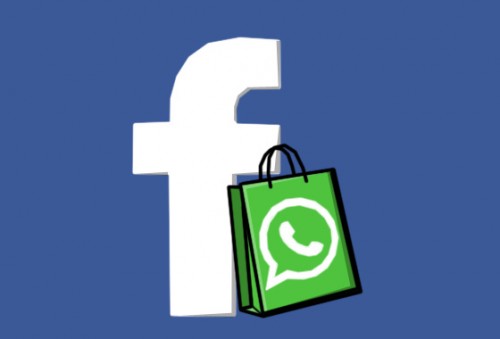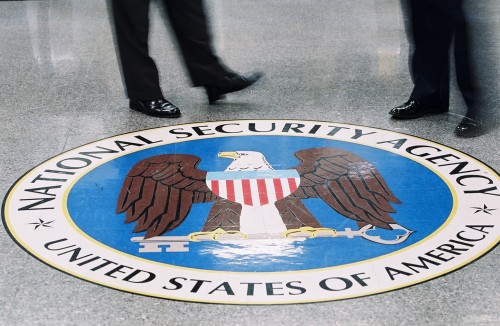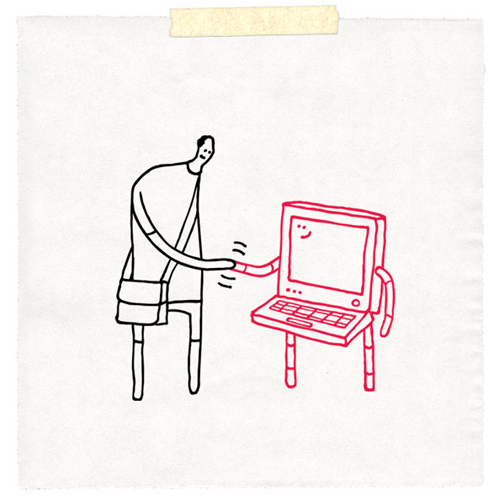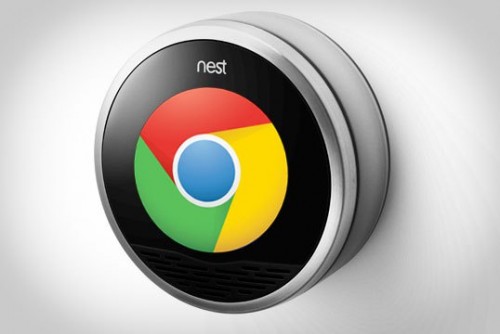2014 27
Money Can’t Buy You Time
Published by MartinVarsavsky.net in Entrepreneurship with

When I was a student dreaming of making it as an entrepreneur, I imagined that success would give me a world of opportunity in which so many new possibilities were open to me.
Well, a few billion dollar exits later, this turned out to be only partly true. The other lesser known obvious fact is that the day of an entrepreneur has the same amount of hours as everyone else’s.
After a while, you realize that success means not that you can say yes to so many new and phenomenal opportunities, but that you end up saying no to even more new and phenomenal opportunities. And these rejections keep piling up in the form of not hiring a great person, or not attending a great event, or not investing in a great company, or not taking a fantastic vacation, or even worse, missing the birthday of somebody you love so much.
Because in the end, there is only so much you can do, and the differences among great opportunities are not big enough for the choices to be obvious. Especially if you also love being a husband, father and friend and a lot of your time is devoted to that. Every time Nina, my wife, says we have to go over our calendar, I agonize.
As you do well in life, it’s not the cost of choices that drives scarcity, it’s distributing finite time over them that does. And a good life, as a good product, is not about being able to do everything, but about doing enough, well enough and leaving the rest aside.
2014 20
Is WhatsApp worth $19bn? It is to Facebook and here’s why
Published by MartinVarsavsky.net in General with
 The WhatsApp acquisition price sounds high, sky high, crazy high. But it’s not if you put yourself in Zuckerberg’s shoes and think about it in these terms: Facebook bought a network that was a real threat to its existence, that is growing much faster than itself (growth drives valuations) and has almost half as many members already, for only 10% of its value. And it prevented it from going to Google. So from this perspective $19bn in Facebook minted currency makes sense. If you call WhatsApp a better SMS system, hence an attack on the telco industry, on size alone, it is as big as half of all the texting that goes on in the world. SMS, as Facebook said in its investor conference after the acquisition, is a $100bn industry. Where are Facebook/WhatsApp headed? In my view towards doing with telephone minutes what WhatsApp already did with SMS. WhatsApp killed the I-bill-you-by-text-message telco model. I would not be surprised if WhatsApp next move is to kill the I-bill-you-by-the-minute model. It is not reasonable that Facebook, which wants to connect everyone on the planet, still does not have a platform for people to have actual conversations a la Viber or Skype. I can’t imagine that things will stay this way. And owning the world’s texting and the world’s conversations may very well be worth $19bn.
The WhatsApp acquisition price sounds high, sky high, crazy high. But it’s not if you put yourself in Zuckerberg’s shoes and think about it in these terms: Facebook bought a network that was a real threat to its existence, that is growing much faster than itself (growth drives valuations) and has almost half as many members already, for only 10% of its value. And it prevented it from going to Google. So from this perspective $19bn in Facebook minted currency makes sense. If you call WhatsApp a better SMS system, hence an attack on the telco industry, on size alone, it is as big as half of all the texting that goes on in the world. SMS, as Facebook said in its investor conference after the acquisition, is a $100bn industry. Where are Facebook/WhatsApp headed? In my view towards doing with telephone minutes what WhatsApp already did with SMS. WhatsApp killed the I-bill-you-by-text-message telco model. I would not be surprised if WhatsApp next move is to kill the I-bill-you-by-the-minute model. It is not reasonable that Facebook, which wants to connect everyone on the planet, still does not have a platform for people to have actual conversations a la Viber or Skype. I can’t imagine that things will stay this way. And owning the world’s texting and the world’s conversations may very well be worth $19bn.
What we have learned about Facebook is that Zuckerberg will pay whatever he has to pay to stop a rising competitor from eating his lunch. First Instagram, now WhatsApp. Moreover that he can live and let live, acquire and keep the acquired company in shape. Instagram is still pretty much the same product it was when it was acquired. WhatsApp is likely to evolve but on its own.
(Photo credit: MusicZine)
2014 19
The Berlin Wall did not completely fall, it moved East, to Kiev
Published by MartinVarsavsky.net in Europe with
Looking at what is going on in Kiev, I think that Ukraine should be allowed to join the EU today. Yes, today. Or at least EU should offer that. It should go further than the November free trade offer. Up the ante. Tilt the balance in favor of democracy.
Ukraine is extremely complementary with the EU in many respects and its population is European. But the challenge with democracy, and especially non-presidential democracy as we have in the EU, is that we have a hard time acting during a crisis. Especially when on the other side we have one person, Putin, who single-handedly can make serious threats for Ukraine should it avoid to join the “Russian Federation” and on our side, it takes millions of voters and a very complicated admission process to join EU or rally any concrete intermediate help. And being cautious is normally fine, but in these unusual circumstances, I think Europe should unite and offer Ukraine to join.
EU has had challenges but I am still convinced that it is the way of the future for this part of the world. More so if the alternative is the current Russian model. The EU is a form of government that gives tremendous democratic, federalist powers and yet a common market for goods, services and currency that allows all to trade. As opposed to US, Canada and Mexico with NAFTA, the EU gives PEOPLE the opportunity to move freely and work freely. And this union will keep Europe very competitive. Just like Poland made Europe more resourceful and complementary by entering the EU, so would Ukraine.
Europe should take Ukraine in out of self interest, out of solidarity and in order to prevent Russia from having an unreasonable power over EU. The Berlin Wall did not fall, it moved East to Kiev, and maybe one day it moves to Moscow, and then Russia reforms and joins the EU as well. Because Russia, Ukraine, have always been and are Europe.
(Photo credit: Brookings)
The pervasive global spying that the NSA was found to be doing goes beyond what Americans and people around the world thought reasonable. Edward Snowden, the whistle blower who revealed the details of how this spying operation works should be praised for raising awareness and hopefully pardoned. If you have time to spend on this matter I recommend watching this video by privacy platform Tor co-founder Jake Applebaum who, theatrics aside, explains what Snowden exposed in great detail.
But now that we know a lot about exactly how the NSA spies, we also know that if we use OpenPGP and tools like Tails we can not be spied upon. So far I see a lot of people complaining about the NSA but few adopting OpenPGP. It is easy to install in your Mac or PC for example. And there are Chrome and Firefox extensions for it that allow you to use encryption on Web mail. Whatever people may say about encryption, encryption works and not even the NSA can crack it. Encryption does for your communications what Bitcoin does for your money. It makes sure it stays your own. So if we want privacy, we can have it.
 Faced with this reality today at work I decided to ask that we use OpenPGP as an option at the company that I manage Fon. Fon is the largest WiFi network in the world and as such a key component of world connectivity. I did this because we work with telco partners around the world, many of which are very concerned about the NSA and US spying in general. Spying has been around forever but what Snowden revealed is how easy it is for the US to tap into the core of the global Internet, and to keep records of all global communications by forcing US companies to collaborate. OpenPGP is something we are implementing so telco partners can, if they want to, have encrypted safe communications with us at Fon.
Faced with this reality today at work I decided to ask that we use OpenPGP as an option at the company that I manage Fon. Fon is the largest WiFi network in the world and as such a key component of world connectivity. I did this because we work with telco partners around the world, many of which are very concerned about the NSA and US spying in general. Spying has been around forever but what Snowden revealed is how easy it is for the US to tap into the core of the global Internet, and to keep records of all global communications by forcing US companies to collaborate. OpenPGP is something we are implementing so telco partners can, if they want to, have encrypted safe communications with us at Fon.
The image of the USA as a trusted ally was at an all time high with Clinton, but was greatly hurt by the post 911 overreaction of Bush invading Iraq in search of non-existent weapons of mass destruction. Afterwards his policies vis a vis torture, kidnapping of suspects to Guantanamo, use of drones, targeted killings of suspects, air bombing of villages of suspected terrorists, made the rest of the world see a side of the USA they did not like. And this deteriorating image was followed by Obama’s expansion of pervasive spying and the revelations of exactly how this was being done. Also by an even greater use of targeted assassinations and drones. The real backlash inside and outside the USA started when Bradley Manning (now Chelsea) made people aware of abuses in the way the State Department and the US military worked. Especially as these irregularities were published via Wikileaks by top media in the USA, mainly by the New York Times, and around the globe in print and videos like this one. And then with Ed Snowden’s revelations we became aware of how exactly we were being spied upon every time we went online.
What happened to the USA can be compared to what happened in a smaller scale with Google and its sky high “do no evil” standard. When you set yourself as being especially good and trustworthy, in the case of the USA as the global champion of human rights, you are held to a higher standard. And just like Google first left China because of spying but then was found collaborating with global spying via the NSA, the US government by its military tactics, torture, drone assassinations and pervasive spying also fell rapidly from grace. And while it is clear to me that most people at Google would prefer a different status quo, it is the US government that needs to change its practices in order for Google and other internet companies to “do no evil”. Fon also must comply with policies we many times don’t like in order to offer WiFi around the world. Yes, safety is important but so are civil liberties and a right to privacy.
If we had learned that China and Russia had an NSA equivalent which did similar spying, we would have not been taken by surprise. But when in the land of the free every citizen is spied upon, the disappointment is huge. Indeed I believe that history books will look at the post 911 era we live in as they now see McCarthysm. Something to be ashamed of. As things stand, what I see around in many parts of the USA and the world is a simple request. Can you please give us back the America we use to love?
(Photo source: NYPost)
2014 15
A wearable connected life companion
Published by MartinVarsavsky.net in General with
Think of all the features that iPhone had when it launched that made it revolutionary. Make a list. Now think of all the features that Android brought on top of those. Help me make a list because other than open source I can’t think of any. The key ones, glass keyboard, icons, a tactile zoom in zoom out interface, the mere concept of an app, all came with the iPhone. Indeed probably the biggest innovation of Android was to make an iPhone like smartphone affordable.
 Now, can you imagine a product that would be as different from the iPhone was to a Nokia or a BlackBerry in 2008? The one that comes to my mind is a computer whose only interface is the spoken word, a computer that you talk to, and it talks back to you. No screen whatsoever. A computer that is like another person. When you talk to a friend there is no screen. Only a dialog. Maybe a change in tone of voice, and a few facial expressions as you listen and see the other person. But if a person, for example, wants to describe something to you that you have never seen, say a new animal, all she has is her voice, her choice of words, to describe it to you. So would this computer.
Now, can you imagine a product that would be as different from the iPhone was to a Nokia or a BlackBerry in 2008? The one that comes to my mind is a computer whose only interface is the spoken word, a computer that you talk to, and it talks back to you. No screen whatsoever. A computer that is like another person. When you talk to a friend there is no screen. Only a dialog. Maybe a change in tone of voice, and a few facial expressions as you listen and see the other person. But if a person, for example, wants to describe something to you that you have never seen, say a new animal, all she has is her voice, her choice of words, to describe it to you. So would this computer.
I wonder if we could build a computer like that. Like Google Glass but without Glass. Just voice in, voice out. Something much cheaper and smaller to make than an iPhone, no screen, smaller battery, a gadget that you could wear like a band or necklace. A wearable connected life companion. And if you worry about sounding like an idiot talking to yourself with this don’t worry, people will think you are on the phone. And you won’t need dorky glasses.
(Photo credit: Tom Chitty)
2014 13
Google’s purchase of Nest validates “app driven things”
Published by MartinVarsavsky.net in General with
 Google paying $3.2bn for Nest, whose app-powered thermostats are in a few hundred thousand homes, encourages us to go on building Fon, which is in 12.4 million homes and growing fast (Google is an investor in Fon). WiFi is an essential part of home automation, shop automation and office automation. More and more unexpected objects are WiFi-enabled, things such as cameras, light bulbs, door locks, electrical outlets, presence sensors, thermometers, humidity sensors, baby monitors, and of course thermostats and fire alarms. All of those objects, as well as the new Fon routers, are all app driven, smartphone controlled. While most entrepreneurs work on apps themselves, I like to work on app driven things. This exit makes me happy for the founders of Nest as well as for Alex Hawkinson and SmartThings (I am an investor) which aims not so much to make individual home automation products but to be the platform that integrates them all together nicely and puts them in the palm of your hand nicely via your Smartphone.
Google paying $3.2bn for Nest, whose app-powered thermostats are in a few hundred thousand homes, encourages us to go on building Fon, which is in 12.4 million homes and growing fast (Google is an investor in Fon). WiFi is an essential part of home automation, shop automation and office automation. More and more unexpected objects are WiFi-enabled, things such as cameras, light bulbs, door locks, electrical outlets, presence sensors, thermometers, humidity sensors, baby monitors, and of course thermostats and fire alarms. All of those objects, as well as the new Fon routers, are all app driven, smartphone controlled. While most entrepreneurs work on apps themselves, I like to work on app driven things. This exit makes me happy for the founders of Nest as well as for Alex Hawkinson and SmartThings (I am an investor) which aims not so much to make individual home automation products but to be the platform that integrates them all together nicely and puts them in the palm of your hand nicely via your Smartphone.
(Photo credit: TechCrunch)
2014 7
On why couples break up
Published by MartinVarsavsky.net in General with
 Couples tend to break up for the same reasons they got together. That when they get together, he says for example: she is so affectionate, so into me, she is so attentive to everything I do. And when they break up he says: she would not give me a moment to myself, she was so demanding, she was always watching me. Or she says: he is so driven, so inspiring. And when they break up she says: he is always at work, never has time for me, he is obsessed with success. Yes, these are stereotypical examples, but I do think that many couples break up not because the partner changed as they say, but because their partner stayed the same. They see the other side of the same coin, the same traits and don’t like them anymore. Instead, those who go on caring about each other see both sides of the coin and love what they have.
Couples tend to break up for the same reasons they got together. That when they get together, he says for example: she is so affectionate, so into me, she is so attentive to everything I do. And when they break up he says: she would not give me a moment to myself, she was so demanding, she was always watching me. Or she says: he is so driven, so inspiring. And when they break up she says: he is always at work, never has time for me, he is obsessed with success. Yes, these are stereotypical examples, but I do think that many couples break up not because the partner changed as they say, but because their partner stayed the same. They see the other side of the same coin, the same traits and don’t like them anymore. Instead, those who go on caring about each other see both sides of the coin and love what they have.
2013 25
Jesus and Santa
Published by MartinVarsavsky.net in General with
I find it surprising how Santa was so successful at eclipsing Jesus in his home turf: Christmas. This is not the case everywhere but very widespread. To understand how strong the displacement has been, think of how many Christmas movies have Jesus as their main character vs all the ones that have Santa. Inadvertently replacing the protagonist made Christmas more palatable for Atheists, Jews, Buddhists, Muslims and all other non Christians to celebrate. I guess Santa broadened the market and simplified/commercialized the message: if you’ve been a good child you get a gift, end of story. This got private enterprise behind Santa and the church somehow lost terrain. It also made it possible for non Christians not to antagonize their own children and celebrate a Christmas that was not only for Christians anymore, which made non Christian children very happy.
2013 24
A different view on abortion
Published by MartinVarsavsky.net in General with
Spain just passed a very restrictive abortion law. I am against this law. I am mainly in favor of sex ed, using contraceptives especially condoms which prevent unwanted pregnancies and HIV infection, but should everything else fails I am in favor of abortion.
Now while I am in favor of choice I am in favor of true parental choice. I am for the rights of women to choose to end the pregnancy. But in the case of married or established couples, I am also in favor of fathers having a say in this decision. In laws around the world, freedom to abort focuses exclusively on the mother. The father has no power to stop an abortion. It is only the woman’s decision to abort or not. But in the case of married couples or established couples (as opposed to one night stands, accidental pregnancies or casual relationships) I think this is wrong. If the husband does want the child, I am not sure that the wife alone should have the right to abort. Because when the opposite happens and the woman decides not to abort then according to most countries’ laws the father can be forced to support that child and be an active parent. And this even includes not only married or established relationships but casual or accidental relationships as well.
So as things stand now, an abortion is only a woman’s decision, but a decision not to abort forces a father to be responsible for the child. That seems unbalanced to me. Just like a father cannot force an abortion on the mother the mother should not be able to force an abortion on the father in an established relationship. Either parent should be able to stop an abortion. This is not about the questionable rights of an early stage embryo, this is about the established rights of both parents.
2013 20
The communicators and the strategists
Published by MartinVarsavsky.net in General with
I have been fortunate to meet some of the most successful entrepreneurs in the world and I would like to share an observation with you.
 The most successful entrepreneurs… belong to two very different groups. The communicators and the strategists. When you meet communicators you are in awe. Examples are Bill Gates, Jeff Bezos. Their success makes sense to you. They can articulate very well how it came about, you buy it. When a communicator presents, interacts, speaks, their strategy is clear and communicating their strategy is part of their strategy. Communicators need to rally others to succeed, they need the participation and enthusiasm of partners and consumers and they know how to get it. Communicators are great presenters, great sales people.
The most successful entrepreneurs… belong to two very different groups. The communicators and the strategists. When you meet communicators you are in awe. Examples are Bill Gates, Jeff Bezos. Their success makes sense to you. They can articulate very well how it came about, you buy it. When a communicator presents, interacts, speaks, their strategy is clear and communicating their strategy is part of their strategy. Communicators need to rally others to succeed, they need the participation and enthusiasm of partners and consumers and they know how to get it. Communicators are great presenters, great sales people.
But when you meet a strategist you have the opposite reaction. You listen to them and wonder how could this person be so successful.
Now the strategists did not become successful selling themselves or building alliances, nor convincing others to buy their products, they made it by making one good decision after another. They don’t make sales calls, they hire others to do that. They basically just think hard. And that process, the introspection, the deep analysis, is impossible to see in another person. The instinct to choose the right members of their team, to go to the core of complex situations, to have a powerful vision of their product, to anticipate competitors moves, that is a process that is clear to them but opaque to the world. Mark Zuckerberg, Larry Page belong to the second group. Highly intelligent, amazing analysts and builders, poor communicators.

